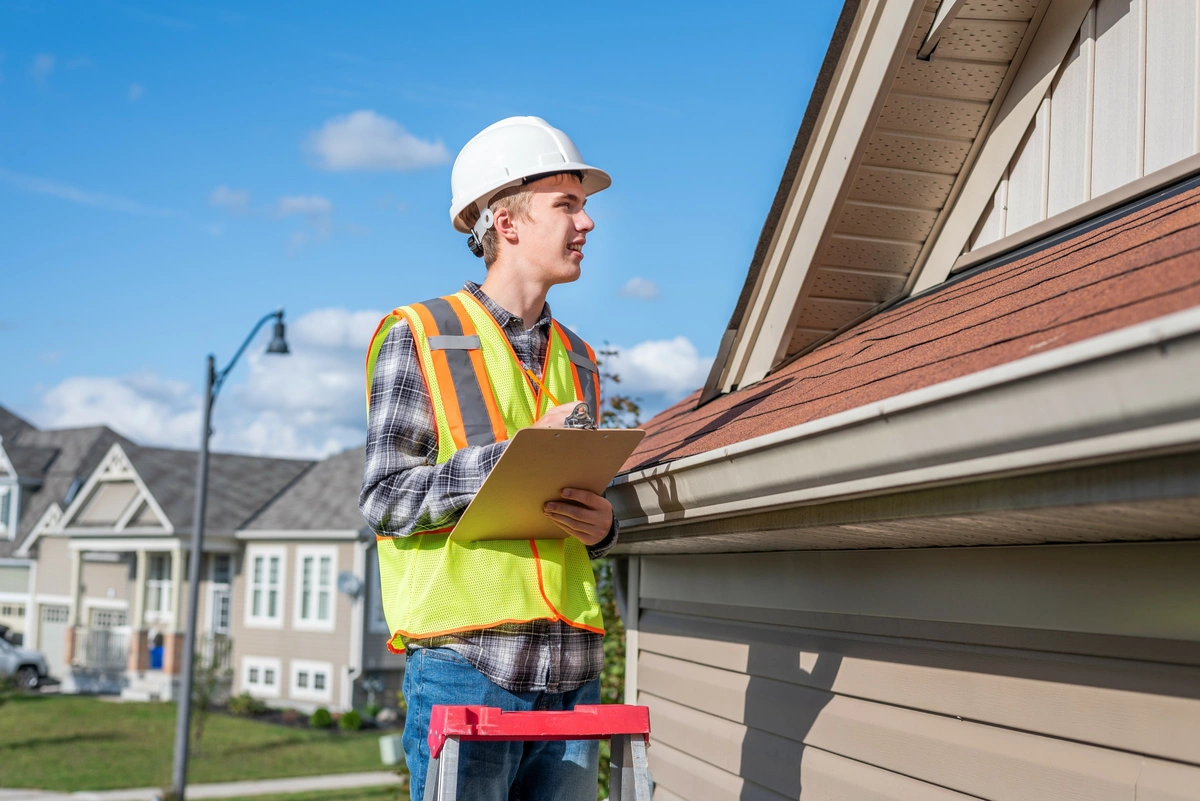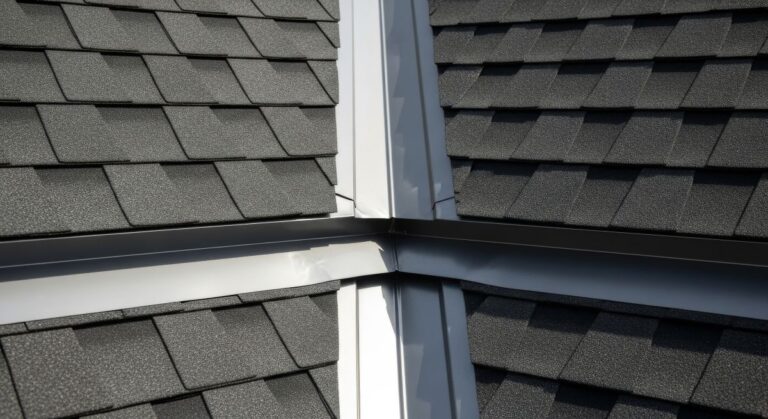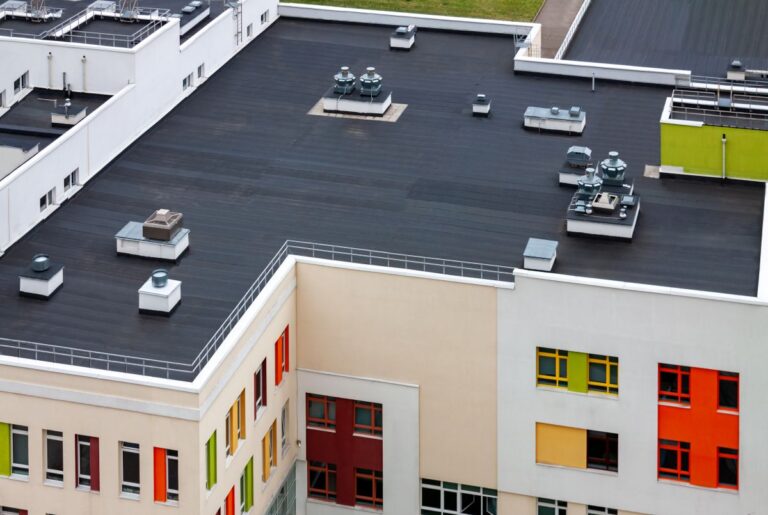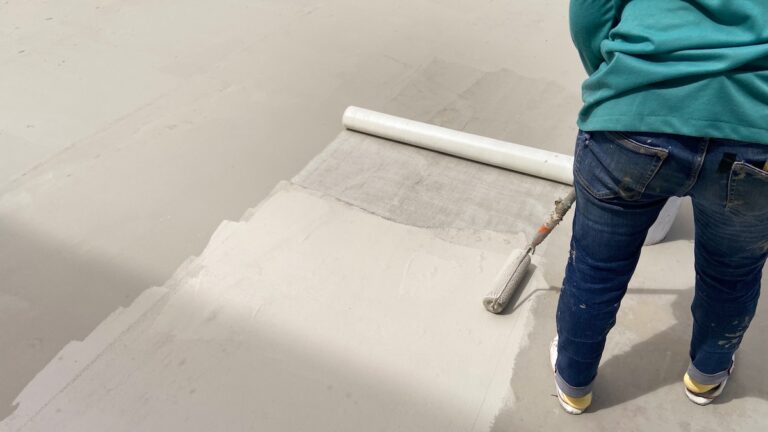A properly functioning roof is key when it comes to shielding you and your belongings from rain, snow, wind, and more. However, like any part of your home, it requires regular maintenance to ensure it stays in top condition. One essential aspect of this maintenance is roof inspections.
In this guide, we’ll help you understand:
The intricacies of roof inspections, addressing questions like :
- How long inspections take
- What inspections entail
- Why roof inspections are crucial for your home’s longevity
How long does a roof inspection take? Keep reading to find out.
Signs That You Need a Roof Inspection
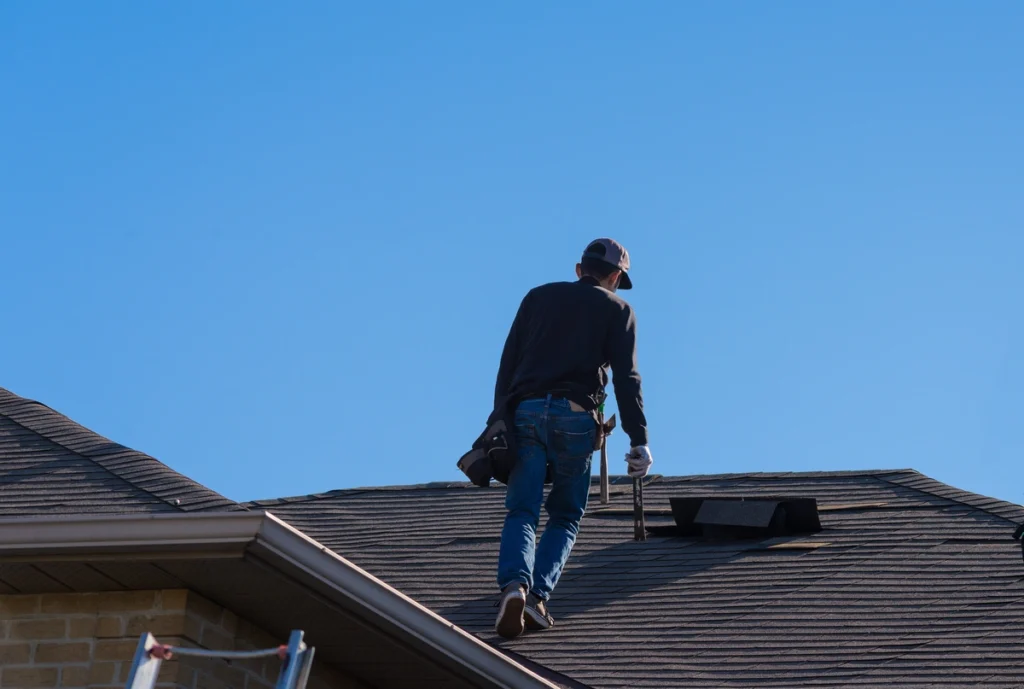
Before delving into the specifics of roof inspections, it’s essential to recognize the signs that indicate you may need one. These signs include:
- Age of the Roof: If your roof is approaching or has surpassed its expected lifespan, it’s prudent to schedule a professional inspection, even if there are no visible issues.
- Visible Damage: Obvious signs of damage such as missing or cracked shingles, sagging areas, or water stains on the ceiling suggest underlying issues that warrant inspection.
- Leaks or Water Damage: Water stains on interior ceilings or walls, or evidence of water infiltration in your attic, indicate potential roof leaks that need immediate attention.
- Granule Loss: If you find granules from asphalt shingles accumulating in your gutters or around your home, it could signal deterioration of the shingles and the need for inspection.
- Pests or Mold Growth: Infestations of pests like termites or rodents, or the presence of mold or algae on your roof, can compromise its integrity and necessitate inspection and remediation.
5 Things Your Inspector Will Look For
During a roof inspection, a qualified inspector will conduct a thorough assessment of various components to identify any issues or potential problems. Some key areas they will examine include:
1) Roofing Materials:
Inspectors will assess the condition of your roofing materials, including shingles, tiles, or metal panels, looking for signs of wear, damage, or improper installation.
2) Flashing and Sealants:
They will check the integrity of flashing around vents, chimneys, and other penetrations, as well as the condition of sealants used to prevent water infiltration.
3) Gutters and Downspouts:
Inspectors will examine gutters and downspouts for debris buildup, damage, or improper drainage that could lead to water damage.
4) Attic and Interior:
They will inspect the attic space for signs of water intrusion, such as mold growth, damp insulation, or water stains on rafters and sheathing.
5) Structural Integrity:
Assessing the overall structural integrity of the roof, including rafters, trusses, and decking, to ensure they can support the weight of the roofing materials and withstand environmental stresses.
How Long Does a Roof Inspection Take?
The duration of a roof inspection can vary depending on several factors, including the size and complexity of the roof, accessibility, and the thoroughness of the inspection. On average, a typical roof inspection for a standard-sized home can take anywhere from 45 minutes to 2 hours. However, more extensive or intricate roofs may require additional time for a comprehensive assessment.
The inspector will need sufficient time to inspect all areas of the roof thoroughly, as well as any interior spaces such as the attic. Additionally, if they encounter any issues during the inspection that require further investigation or documentation, it may prolong the process.
The Cost of a Roof Inspection
The cost of a roof inspection can also vary depending on factors such as the location, the experience of the inspector, and the size and type of the roof. On average, you can expect to pay between $150 and $400 for a professional roof inspection.
It’s essential to choose a reputable and experienced inspector who will provide a thorough assessment of your roof’s condition. While cost is a consideration, it’s equally important to prioritize quality and expertise to ensure accurate findings and recommendations.
How Often You Should Get Your Roof Inspected
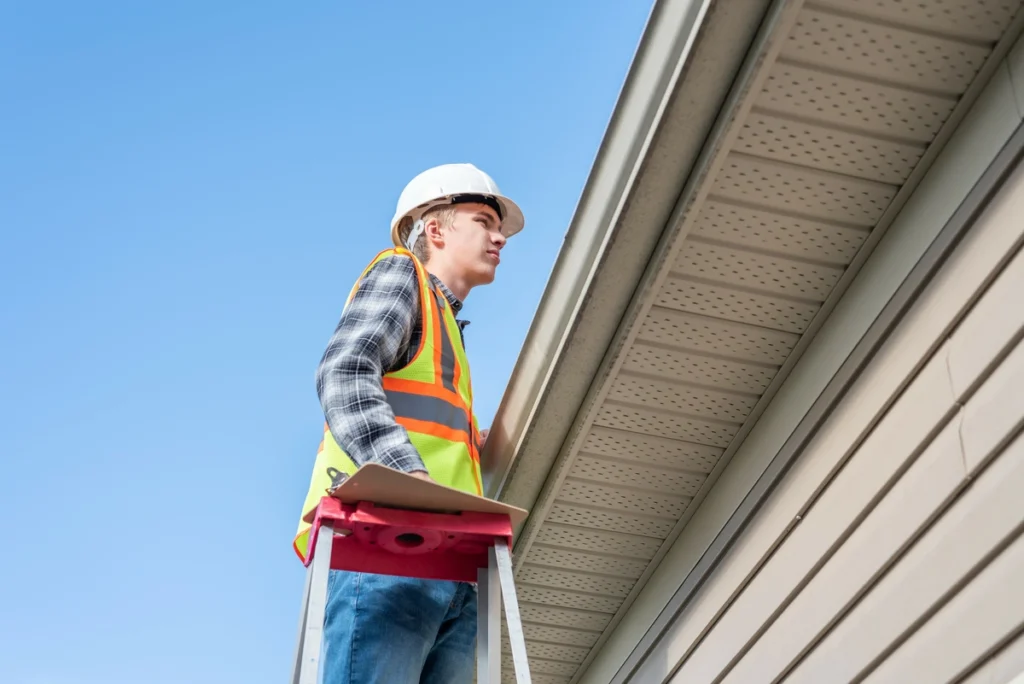
Regular roof inspections are a critical aspect of home maintenance and can help prevent costly repairs or replacements down the line. As a general rule of thumb, you should schedule a professional roof inspection at least once a year. However, certain factors may necessitate more frequent inspections, including:
- Age of the Roof: Older roofs, especially those nearing the end of their expected lifespan, may require more frequent inspections to monitor their condition and address any issues promptly.
- Severe Weather Events: After severe weather events such as storms, high winds, or heavy snowfall, it’s advisable to schedule a post-event inspection to assess any damage or stress on the roof.
- Recent Repairs or Installations: If you’ve recently had repairs or installations done on your roof, it’s prudent to schedule a follow-up inspection to ensure the work was completed correctly and to identify any potential issues.
- Surrounding Environmental Factors: Homes located in areas prone to environmental factors such as high humidity, extreme temperatures, or heavy foliage may require more frequent inspections to mitigate potential risks and damage.
Work With A Trusted Roof Inspector
A roof inspection is a fundamental aspect of maintaining the integrity and longevity of your home’s roofing system. By understanding the signs that indicate the need for an inspection, what inspectors look for, how long it takes, how much it costs, and how often it should be done, you can take proactive steps to safeguard your home against costly repairs and ensure peace of mind knowing your roof is in good condition. Schedule your next roof inspection today and invest in the long-term health of your home.
Looking for a roofing contractor who can help with your exterior roof inspection? Johnson Restoration is here to help! Contact us today to get started.
